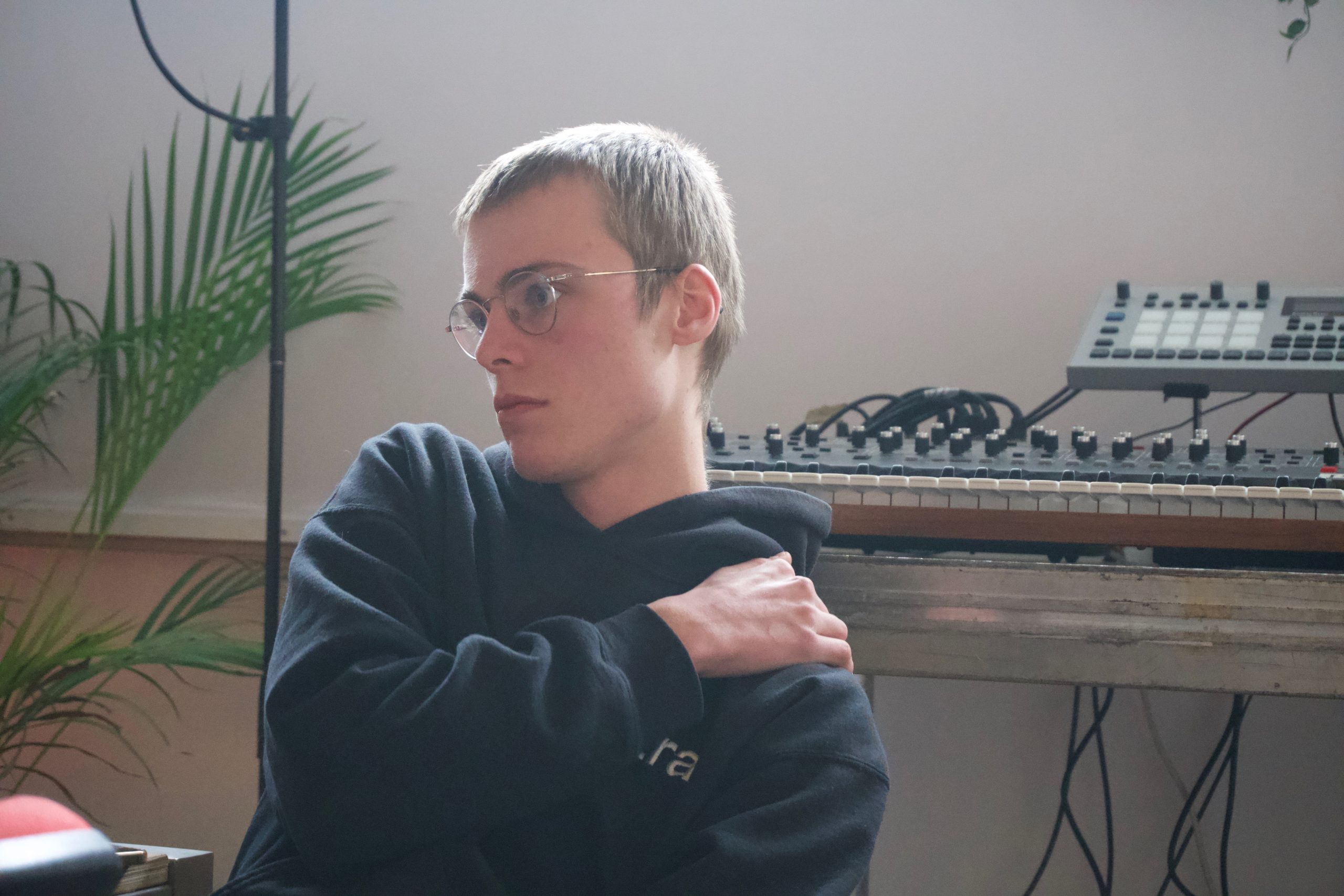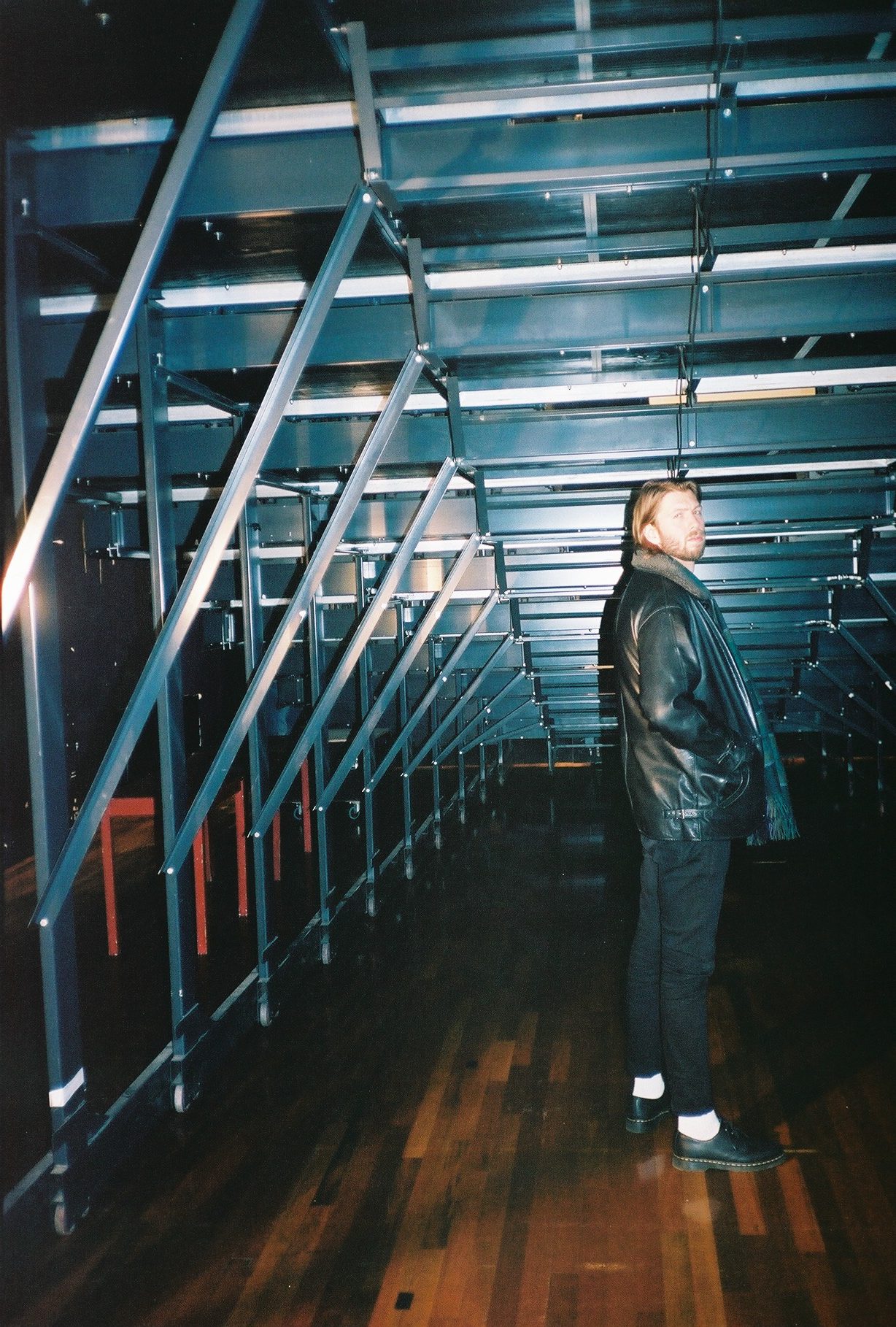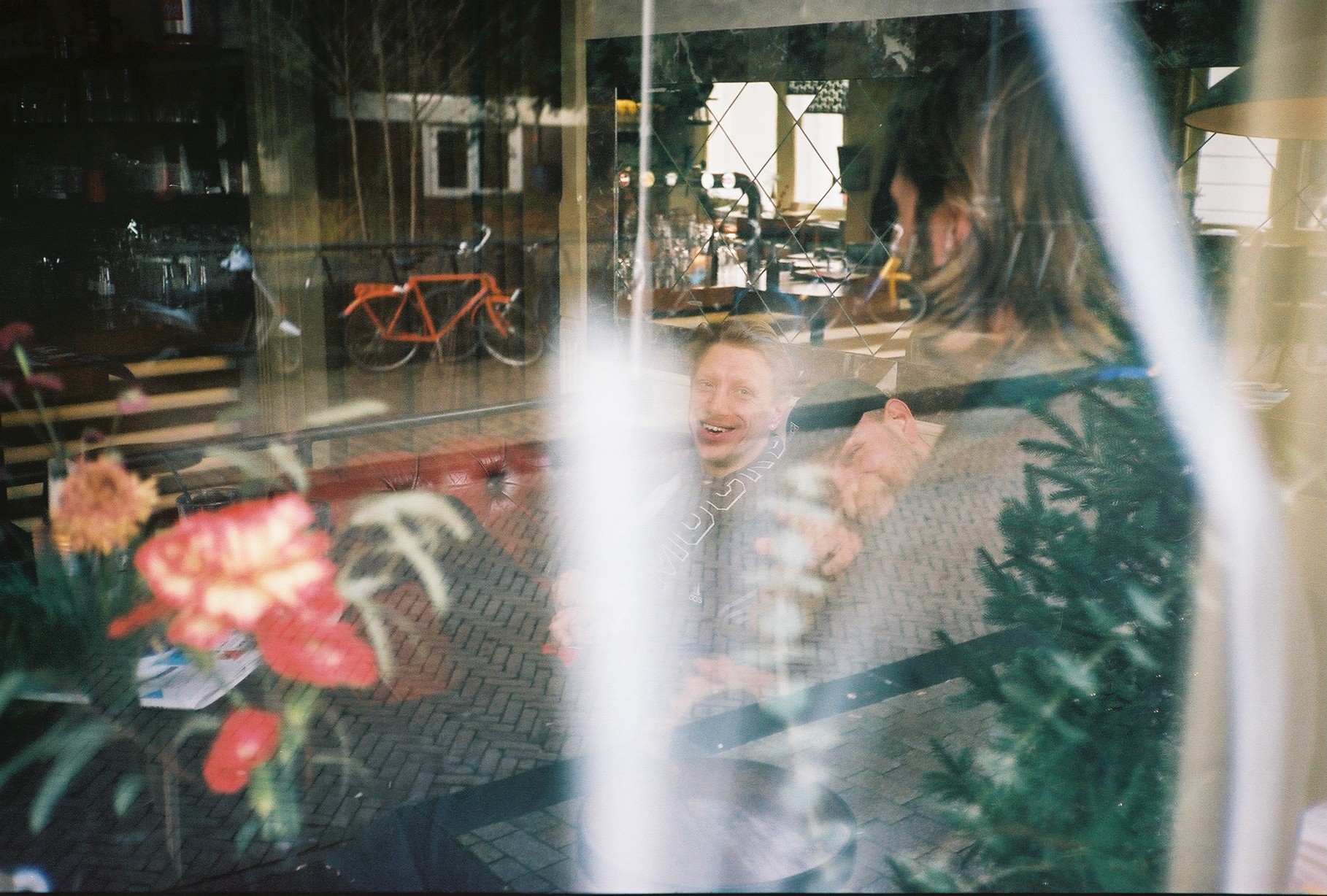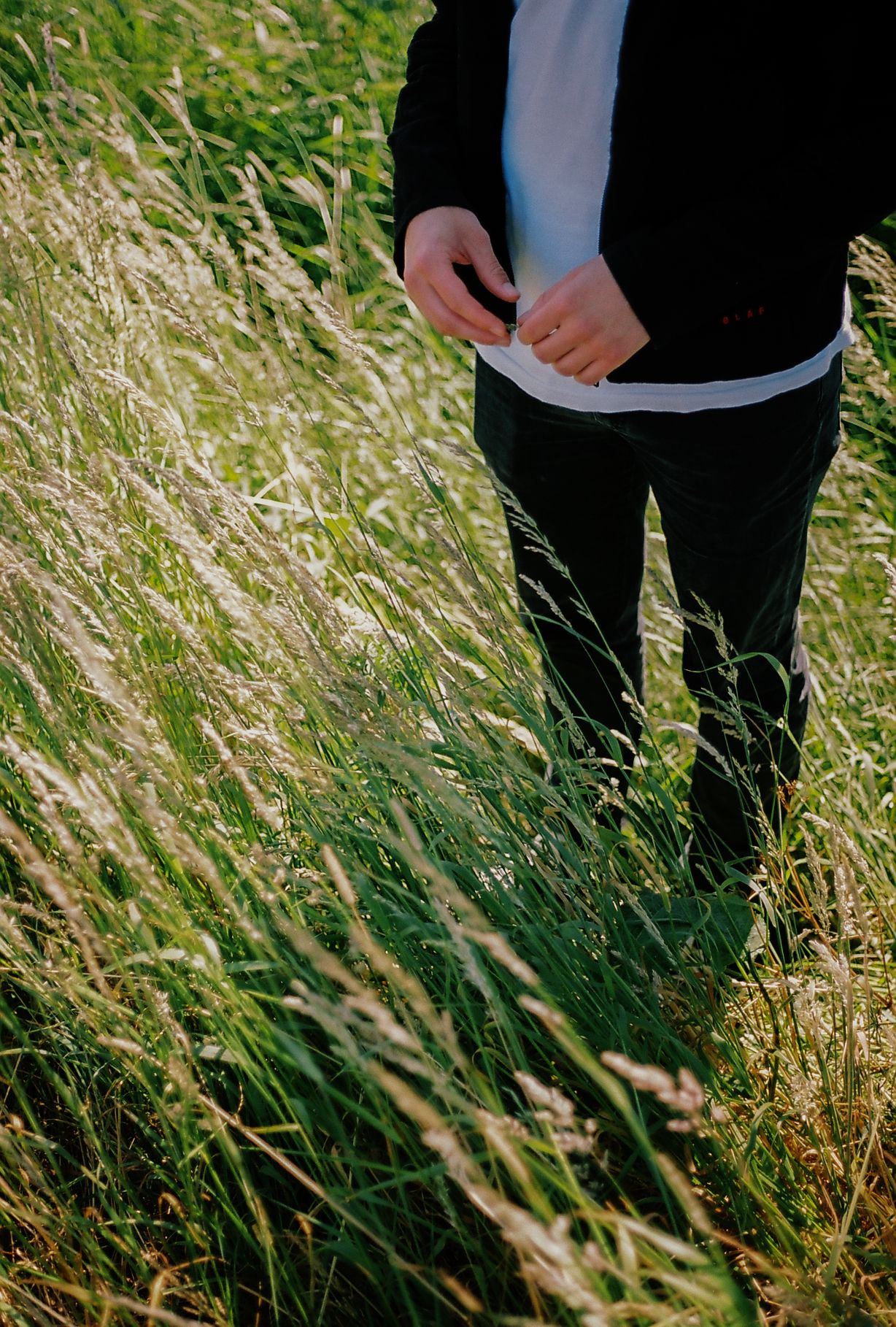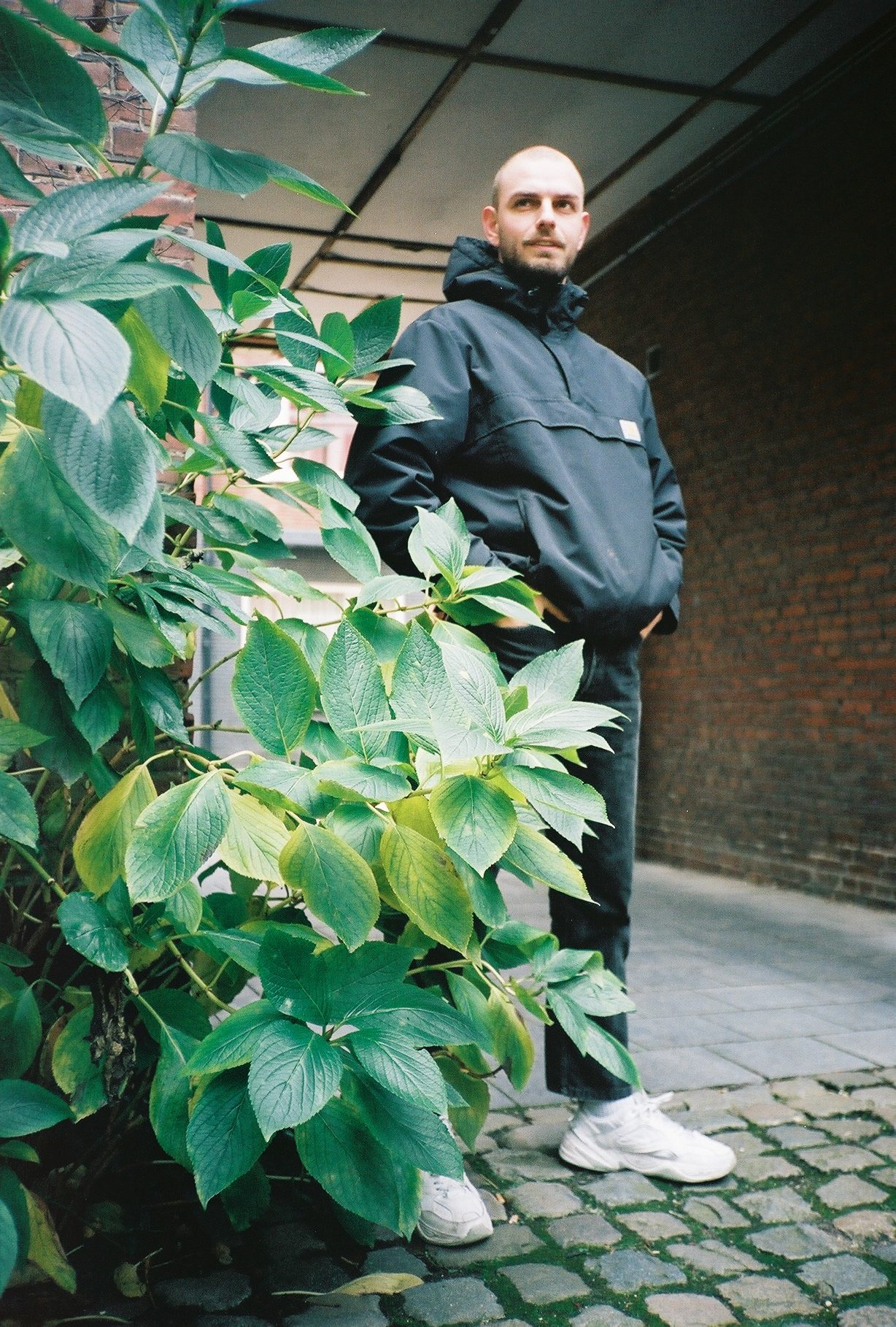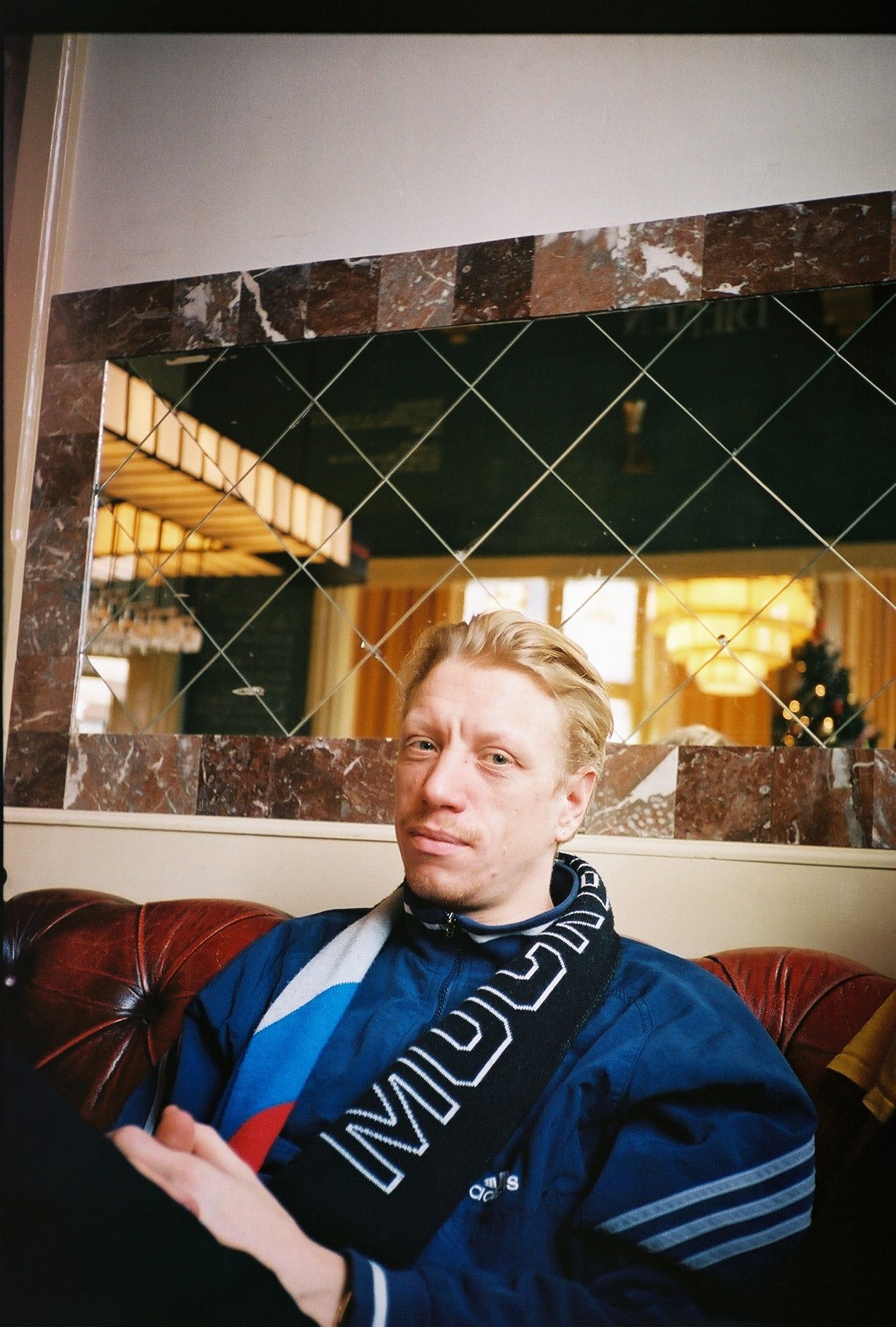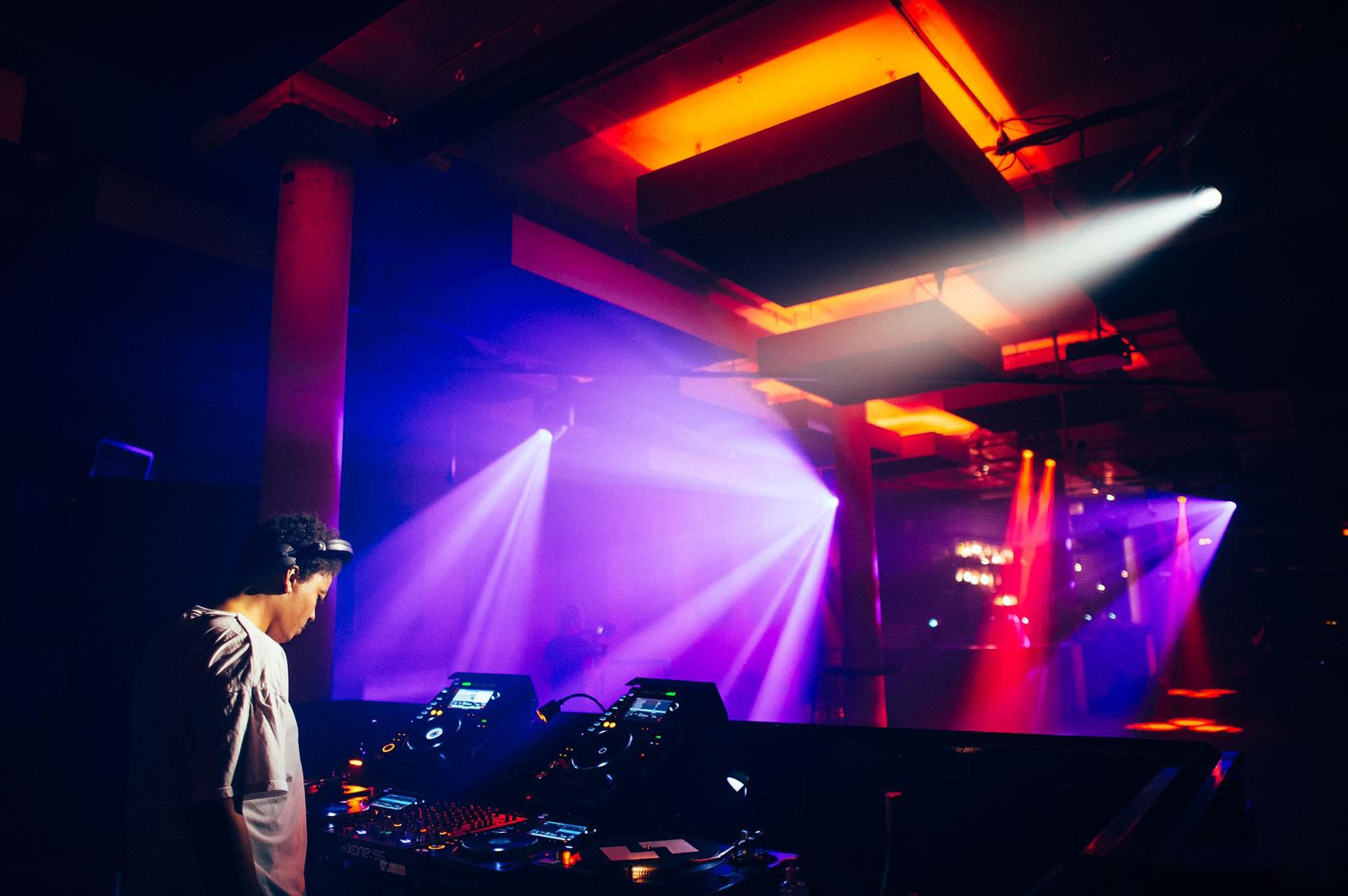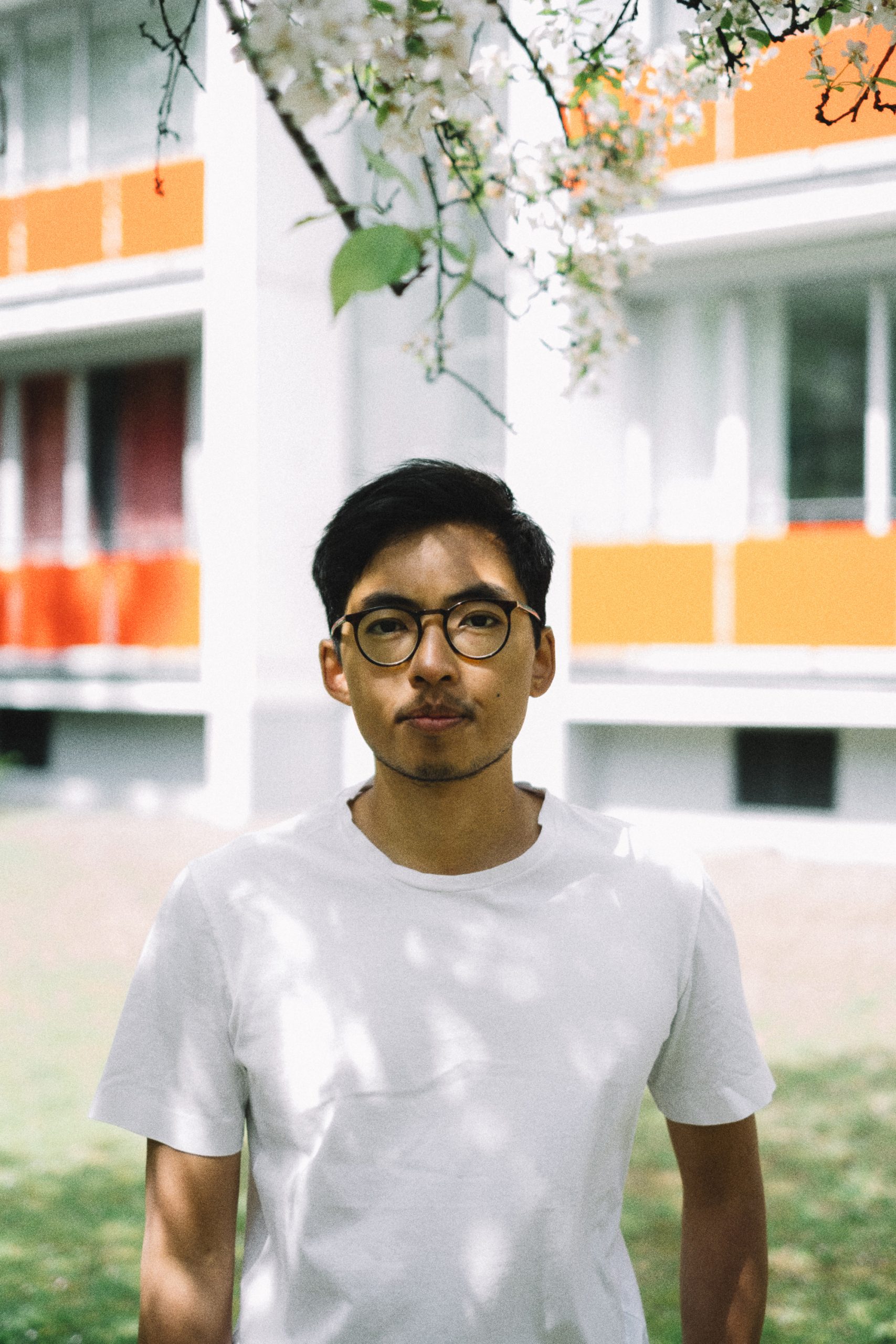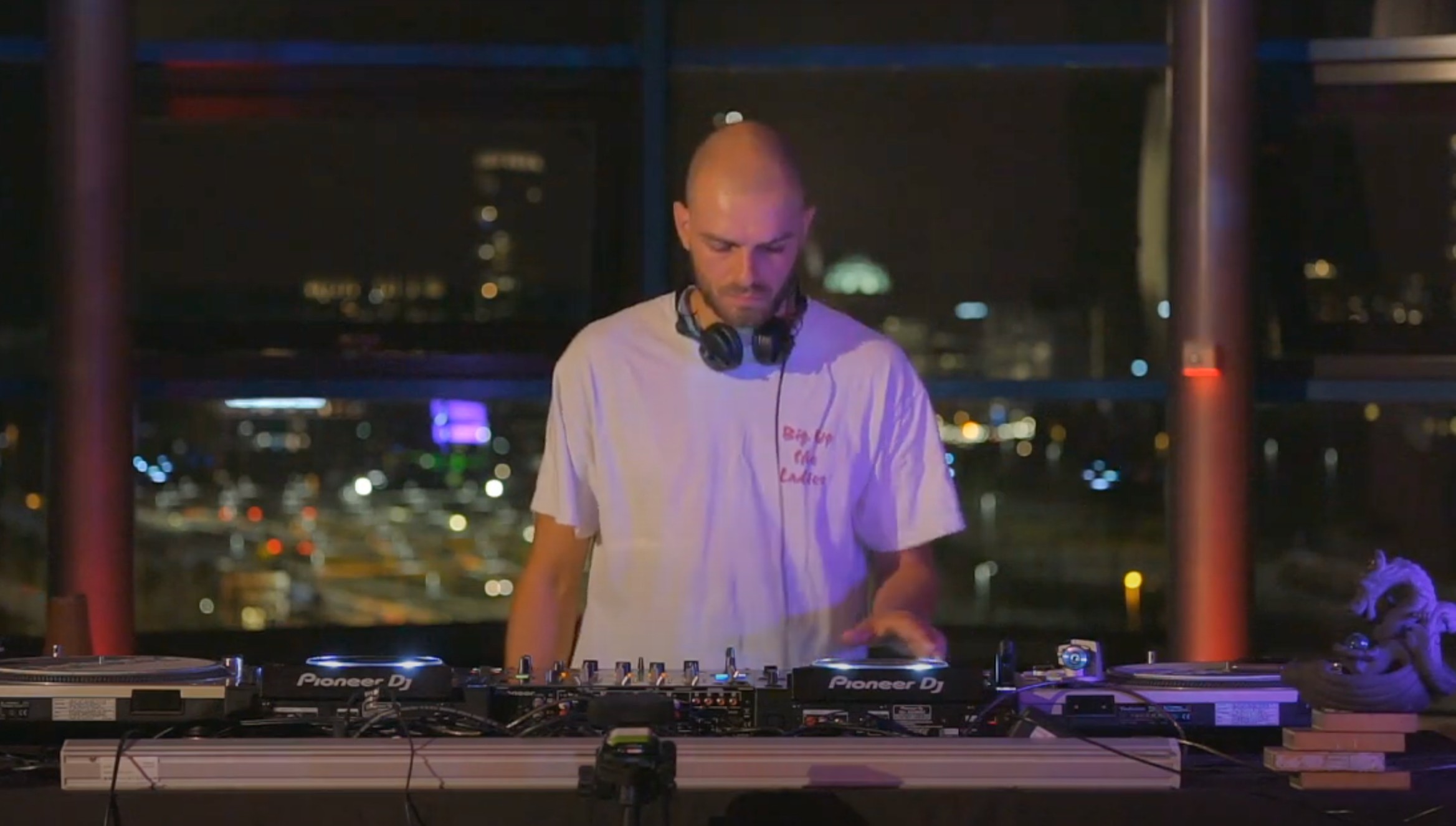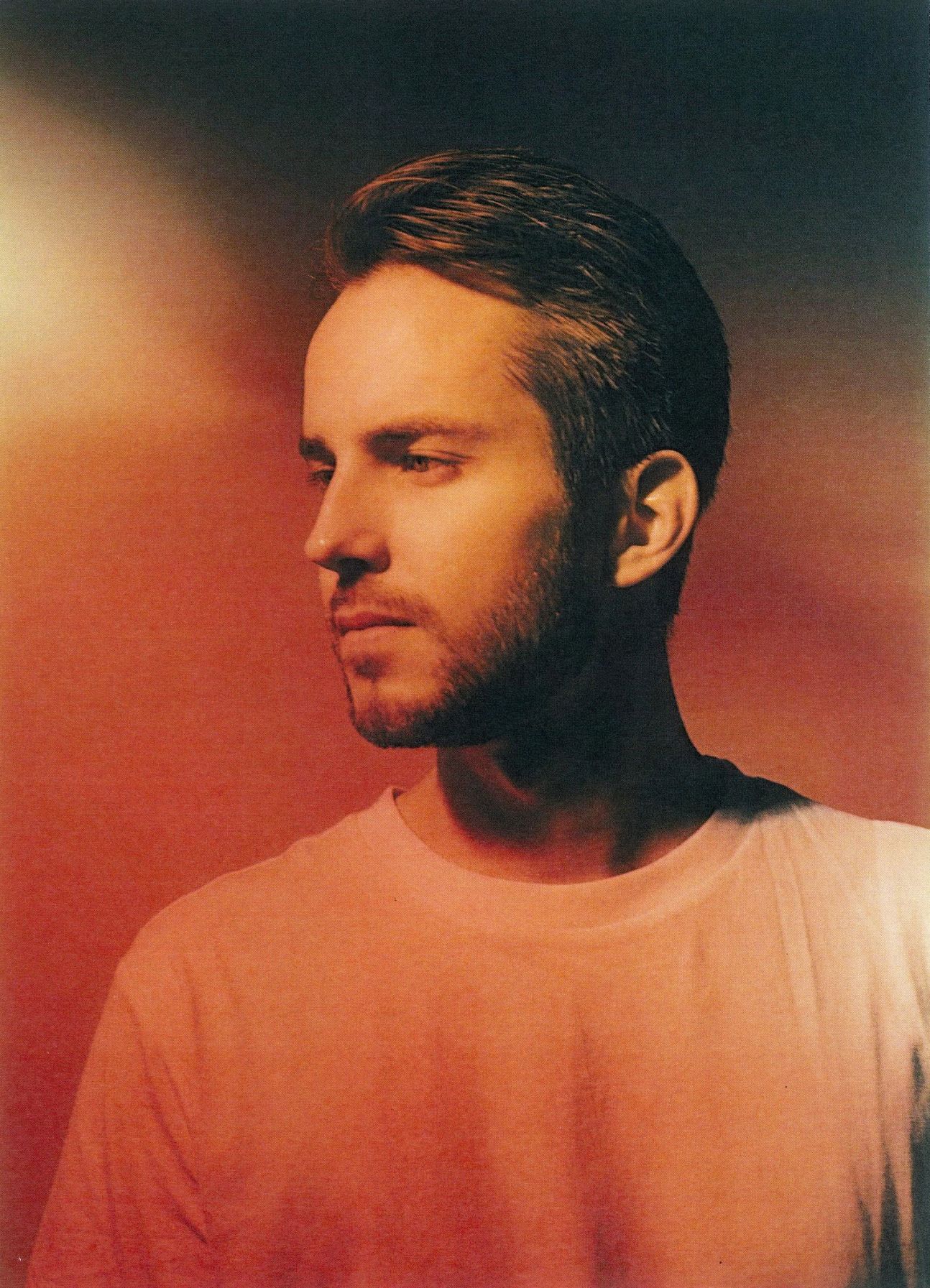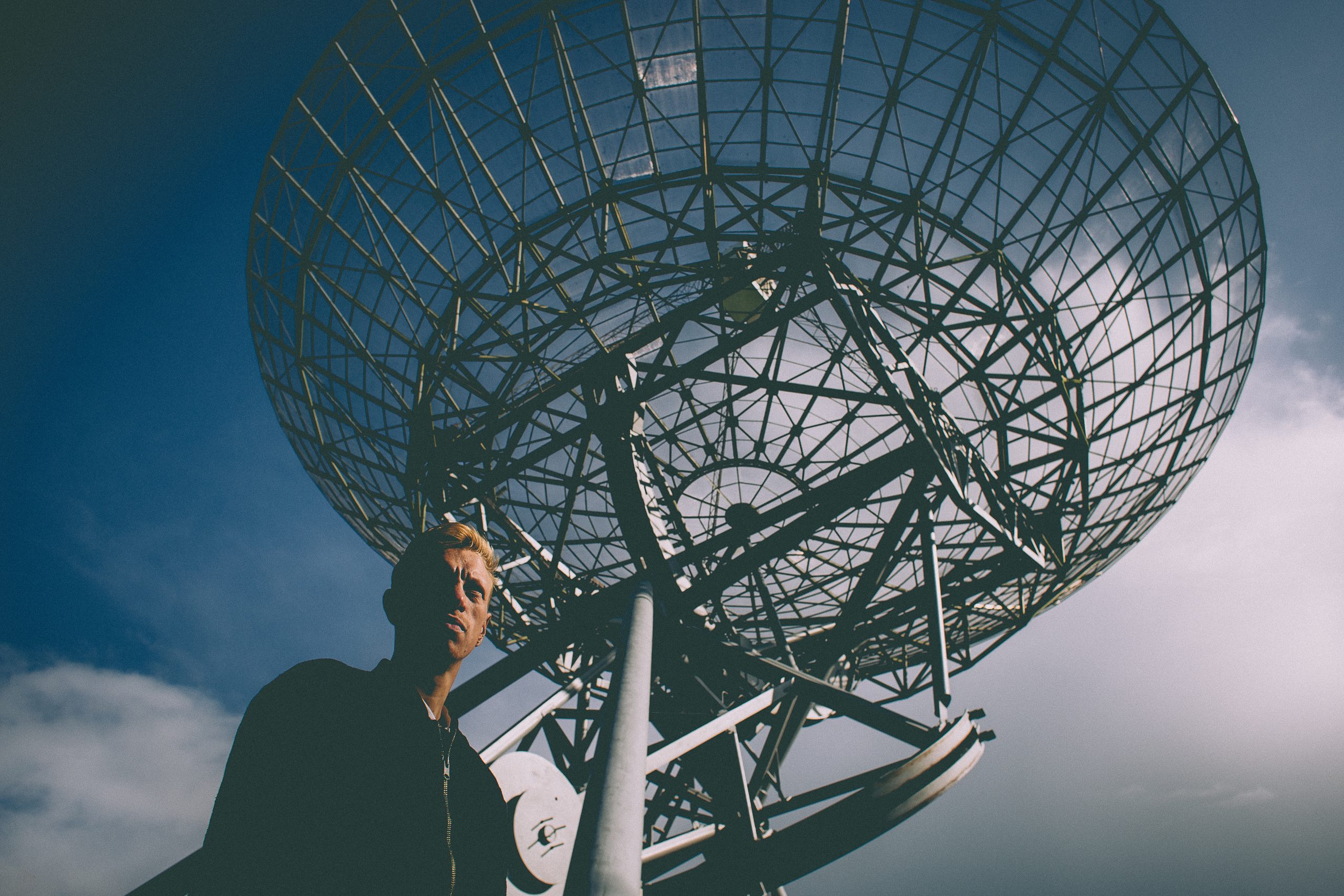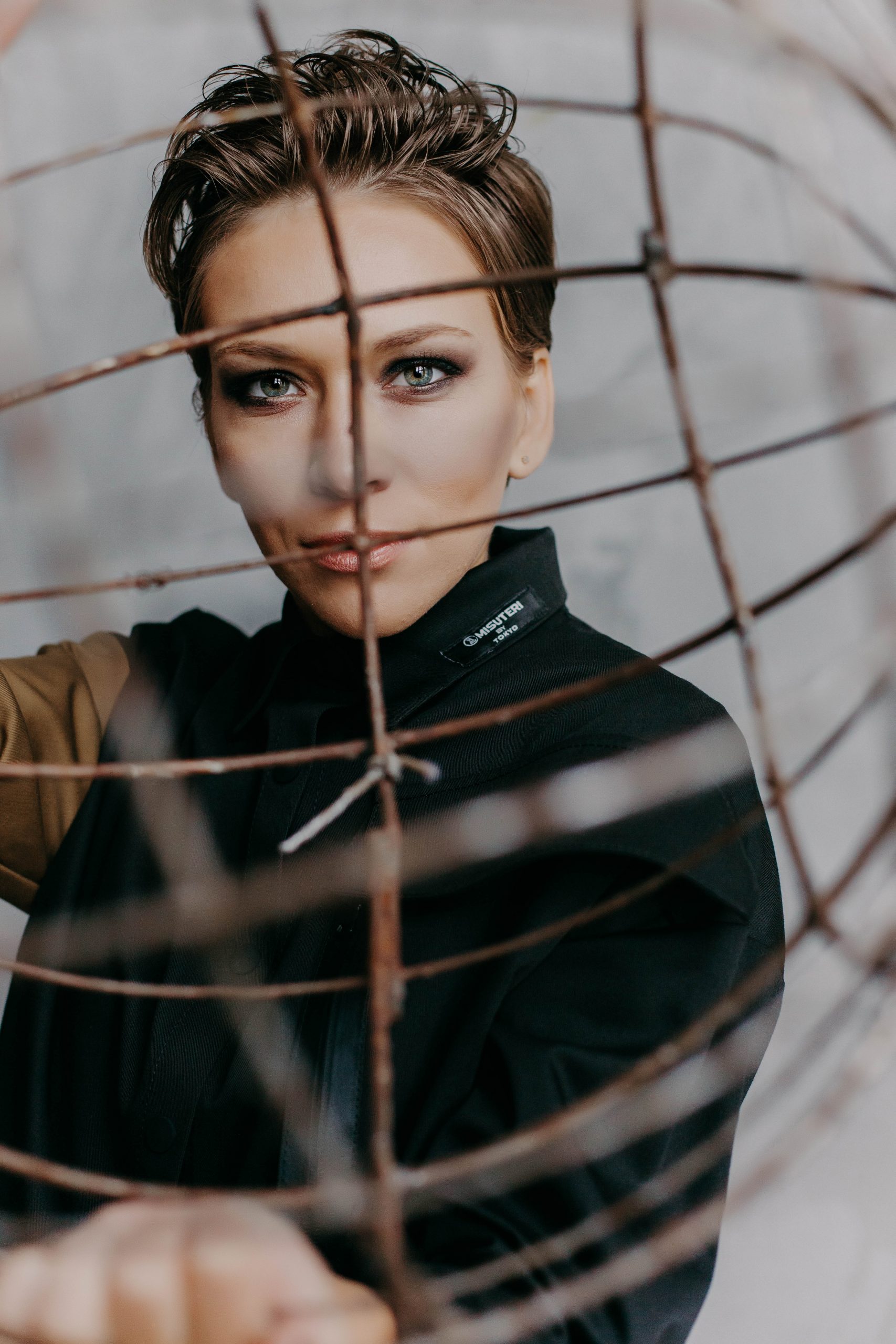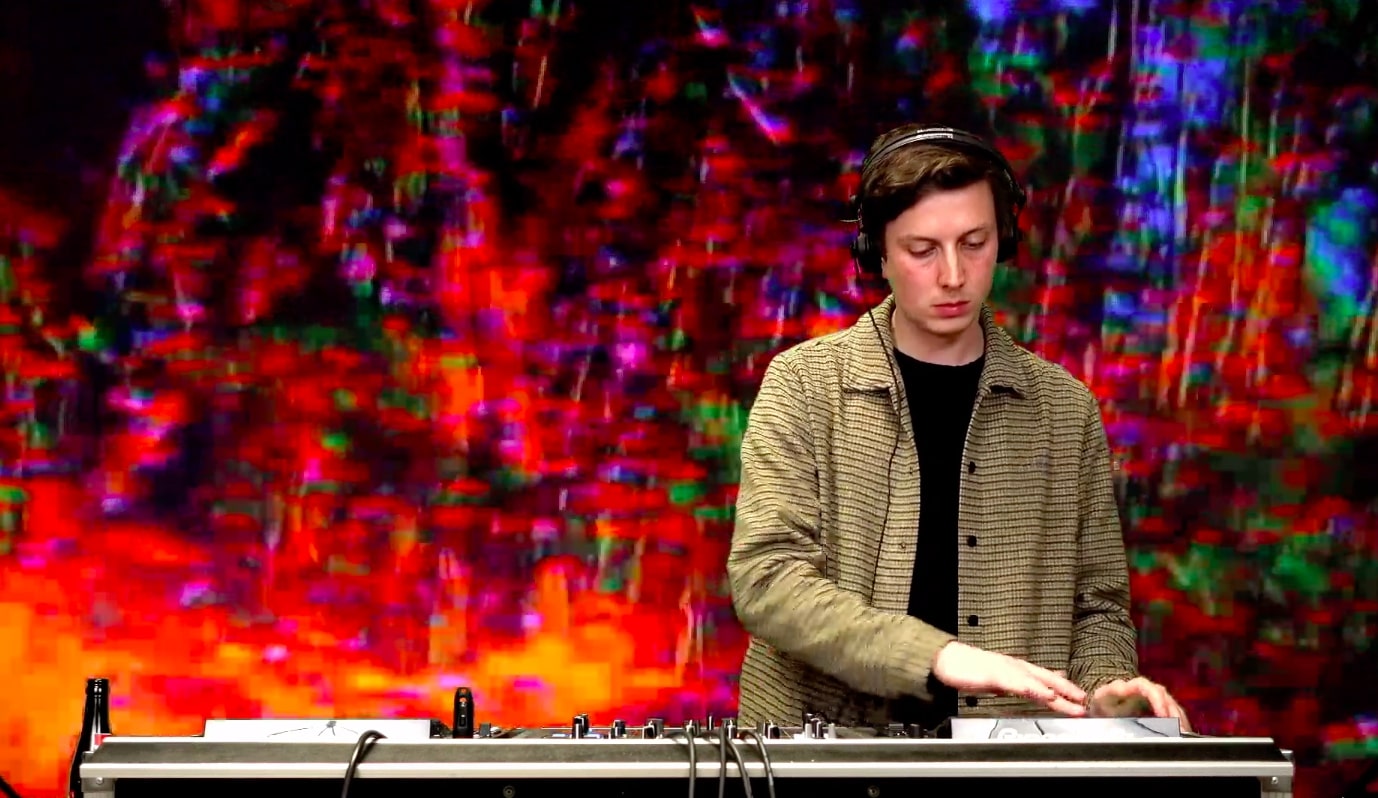In the studio with:
In The Studio With: Ineffekt
Date
23.04.2021
Editor
Jaap Maas
Photos
Jaap Maas
Longread
+- 15 min
Share
For the “In the studio with” series, we’re joining Ineffekt, for a day in the studio. We’re taking a closer look at his studio, software and hardware, and how this influences his process, flow and inspiration.
Studio, Hardware and Software
Hey Ineffekt, nice to speak to you! How have you been these last few months?
Hey, I’ve been spending most of my time studying and finishing a bunch of new music. It’s been weird and busy, but I think I can say I’m coping pretty well.
Good to hear you’re doing well! First off, can you tell us something about your musical background? For example, have you been musically schooled and for how long have you been making music?
I haven’t really been schooled, I did take guitar lessons when I was younger, from my eleventh till my fifteenth or so, and started producing when I was around fifteen. So, I’ve been producing for around four years now. I think I produce a couple of hours every day, but the intensity differs throughout the year depending on how I’m feeling.
When I have inspiration or a certain idea I tend to flow with that and work really hard on getting a lot of tracks out of that. In that stage, it doesn’t matter what kind of music it is or how it sounds. Then later on I make a selection of the tracks that I think have some kind of cohesion and express what I want to put out and finish those.
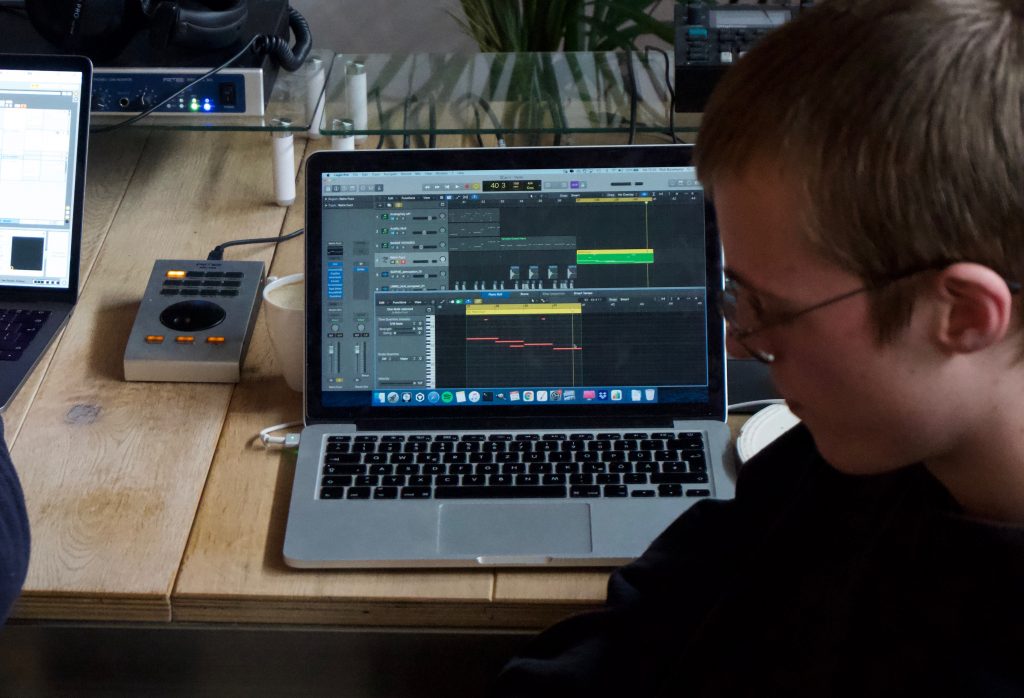
You’ve released ‘Solaris / Broken Dreams’ last year, and I think you’ve managed to create an own style of producing. What do you use to produce your tracks in terms of DAW, speakers, or other hardware?
For a DAW I use Logic. Logic has a nice interface which works well for me. In the past, I’ve also tried Ableton and FL Studio, but the workflow with Logic was the best for me. My collection of hardware isn’t that impressive. I bought a synthesizer and a drum computer a while ago, but I don’t really use them. I mostly work on my laptop with my Sennheiser HD25 headphones. I like working on my headphones because then I’m able to get into my music and close myself off from possible distractions. Also, I think the Sennheiser HD25 series have pretty honest feedback. They do not romanticize the sound but give a quite good representation of what you are doing.
I also have a set of KRK Rokit 8’s, which I use for listening to and feeling my music when I have a new production. This way I can feel the bass going through the room and hear things I might not have heard on my headphones.
So, can I say you’re not really bound by a place to make music? If you take your headphones and laptop with you, you’re ready to go. Do u also mix and/or master your tracks using your headphones?
Yes, exactly. Most of my music I make lying in my bed or sitting on the couch, using my headphones. Using my laptop and headphones gives me the ability to put ideas into practice the moment I think of them. I always have access to my gear wherever and whenever.
When I’ve made a new track, I do most of the basic mixing myself on my headphones, and when I think it’s about ready I can use Raynor’s Moving Sound Studio to do the final mixing. Sometimes he helps me with the mix, but some of them I’ve done on my own.
Then in terms of VST’s and Plug-ins, what kind of things do u like to play around with when making music?
I use a lot of the semi-realistic, acoustic instruments that logic offers. Mostly the acoustic drums that they have. But recently I’ve been using everything from samples, to random things I’ve been recording throughout the city. Even random clicking sounds that you make with your mouth can be cool to use as drums.
Plugin-wise, I use some of the popular Plug-ins or VST’s from Arturia or Native Instruments for example. Besides these, I like to go online and search for free plug-ins, especially the ones that aren’t made by big, known brands, and aren’t used a lot. I started doing this because some plug-ins or VST’s are very expensive but continued with this approach because they encourage you to push your own limits. The thing I like about these smaller, unknown plug-ins, is that they challenge you to approach them differently than the popular ones do. About the known, popular plug-ins you can find tons of information on how to use them, but with the free, almost shitty plug-ins you have to learn it all by yourself and you can actually create really cool things you wouldn’t have been able to create otherwise. Tone2 is an example of a plug-in I like to use. It’s a Synthesizer, which I use in almost all of my tracks.
Besides the plug-ins you use, what other things inspire you to make music and have an impact on your sound.
Vocals have always made a great impact on me when listening to music. In my tracks, I also use a lot of vocals, not in the traditional way of singing a lead vocal with lyrics, but singing melodies and recording them sometimes works better for me than playing them on a keyboard or drawing a pattern. Most of the time I record them using the mic from my iPhone or Macbook, even though I have a proper mic. The way you can manipulate your voice into something completely different is something I like to play and experiment with. It’s almost like I use my voice as a synthesizer – you can create very organic melodies with it.
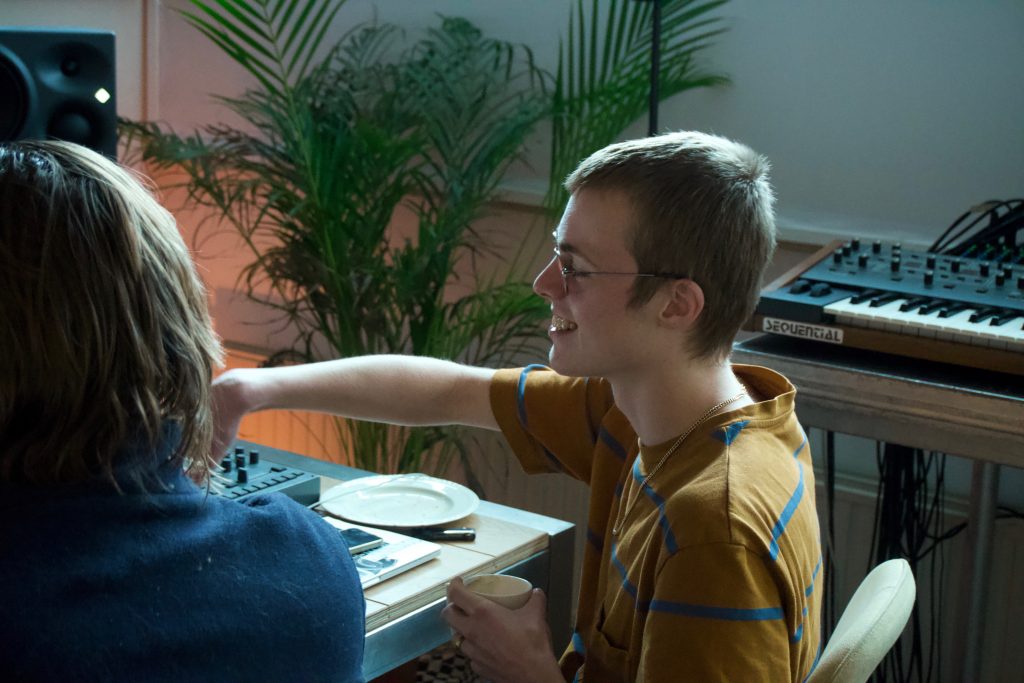
Process, Flow and Inspiration
So, you like to use your vocals as an extension of your toolbox. How would you describe the sound you create with the things you use? What are key elements in your tracks that always come back and thus create your sound?
The thing I enjoy doing in my tracks the most is combining poppy, catchy melodies with whatever I can think of. So I try not to let my music be sat in a certain range of BPM’s or beat-types, but play around with it. 4/4 beats at 120 bpm or tough breaks at a bpm of 140 – anything goes. but the way I use my melodies to put it all together is what really creates my sound I think. The overall feeling, or colour, is more important to me than fitting into a certain genre, and I hope this is something the people who listen to my music can relate to. It’s always a guess for me. I never know how people will react, because to me some tracks can sound cohesive even though they are very different from each other.
What do you do when you open your laptop and start making music. Do you have a routine you always follow, or do you open your laptop and just let your feelings take you somewhere?
I don’t follow a specific structure. Most of the time, I start with an idea or a feeling and try to translate this into the track, but all options are kept open. For example, these can be elements I hear in other songs I like and get inspired by. When I start a new project I tend to have an idea or concept about what it should feel like, but I never start like, “I want to make a house track now”. This happens naturally. Then later on, when I made a bunch of music, I listen to the projects and think of how I can make them coherent to one another and how to frame them conceptually and maybe change some elements so they fit together nicely.
What music do you get inspired by, what triggers you to make new things and enjoy making music?
A lot of poppy music, haha. Some people who produce electronic music I look up to are Avalon Emerson, A.G. Cook, and Upsammy. They also tend to play with a lot of melody and vocals, while not trying too hard to go for something in particular. I don’t want to just be able to pump my fist in the air and dance to hard music, but I also want to sort of please my ears and sometimes not know how to dance to the music being played. With this in the back of my mind, I think one of the most amazing artists that did that is SOPHIE (r.i.p).
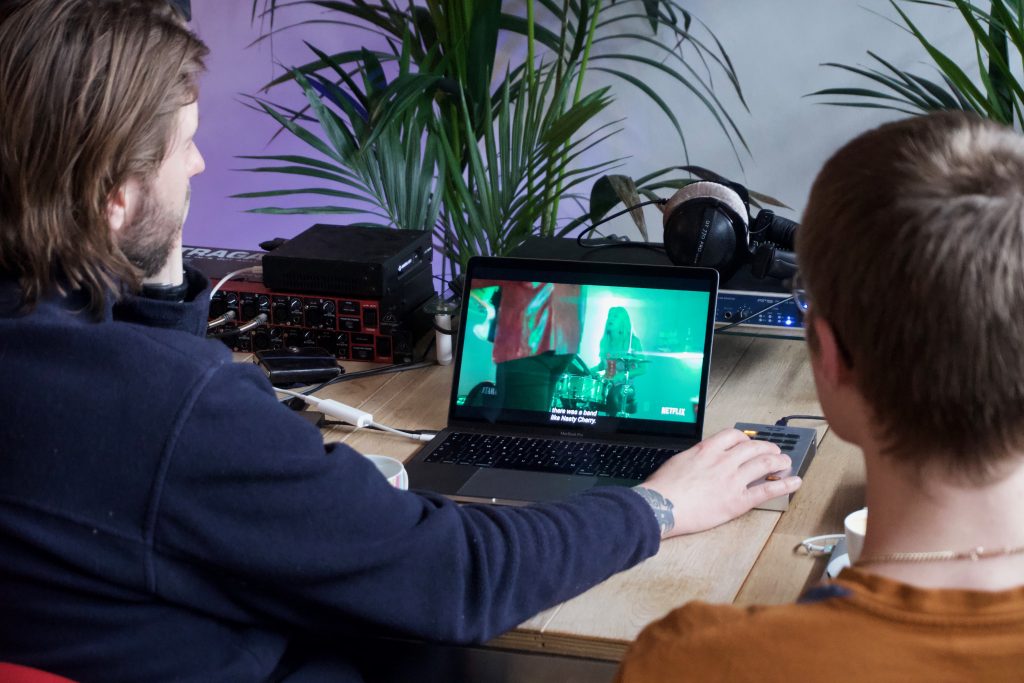
You’re born in Breda, but moved to Amsterdam. Why did you move there and how has this influenced your style of production?
Moving to Amsterdam was kind of a no-brainer for me, I was there all of the time already. Some of my friends moved there and I liked the club scene in Amsterdam. I moved there last year when I went to college in Amsterdam to study law.
It definitely impacted my sound, but this comes more from the fact that I saw so much more different kinds of clubs and dance music than I saw in Breda. I started going to clubs where they mostly played Techno music, but later on discovered people like Ben UFO and Avalon Emerson who play all kind of genres. A lot of the stuff I’ve heard on such club nights influenced the music I make. I’m not saying you can’t hear good music in other cities – you definitely can – but it’s way more accessible here. Some of the artists I’ve seen here for the first time are some of my biggest influences now.
During your production process, do you show ‘your’ music to a lot of people you know and listen to all the feedback you can get, or is this more of a select group of people whose opinions you value?
Not really, I don’t send demos to a lot of people. It’s a very select group. Raynor (Coloray) for example hears most of my music, but also a couple of my close friends. For me, it is important that the people who listen to it, understand my thoughts and know what I am trying to achieve and tell through my music. Only listening to an mp3 of a demo doesn’t really show the whole picture I’m trying to make. It involves a visual side and complementary tracks well.
I’ve also heard some of your new projects already and I can say a lot of the stuff you’ve told me comes back in your music. You’ve also mentioned Coloray a couple of times, how did the two of you meet and why did you decide to release at Intercept?
It’s funny you ask actually. I met Frank (French II) at a party once and somehow he ended up listening to some of my demos and connected me with Ray, who wanted to release them at Intercept. I was super stoked off course; when you’re starting out, releasing music is one of the main goals. Then you end up speaking to each other more often and we discovered our taste and vision on music had a lot of similarities. The mutual trust started to grow and develop into a friendship. This has been very important to me and brought me a lot of motivation and inspiration to not only make new music, but also go deeper into finding out who I am as a person and as an artist.
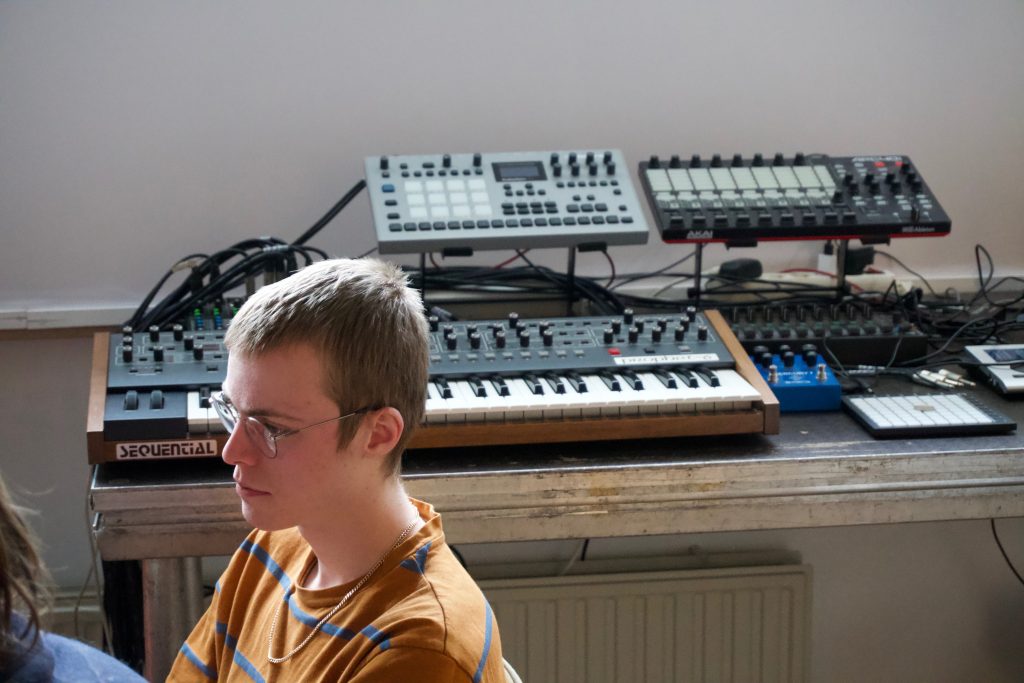
Thanks, Ineffekt, for opening up to us about your music and giving us a closer look at how you approach your productions. But also about how you can explore new aspects of both yourself and music while producing. There is a lot of new stuff coming up, so we should keep our eyes and ears open for you. Be safe!
